In this edition of Sliced, the 3D Printing Industry news digest, we cover the latest business developments, partnerships, and acquisitions in the additive manufacturing sector.
Today’s edition features several new 3D printing partnerships, business updates, material advances and qualifications, post-processing and quality assurance developments, and the upcoming reveal of a brand new 3D printing technology that could “unlock manufacturing autonomy” for the additive manufacturing sector.
Read on for the most recent updates from Phillips, Polymaker, Auburn University, Rogers Corporation, PostProcess, AM Solutions, CMG Technologies, Superstile, and more.

3D printing business updates from Photocentric, CMG Technologies, SuperStile, Phillips, GE and Stratasys
Kicking off this week’s business updates is LCD 3D printer manufacturer Photocentric, which has appointed a new distributor for Japan, 3D Printing Corporation. With headquarters in Yokohama and facilities in Osaka and Yamanashi, the distributor is well established within the Japanese market.
“We are delighted to be working with Alexander and the rest of the team at 3D Printing Corporation,” said Paul Haselgrove, Sales Manager at Photocentric. “Their vast experience and knowledge of 3D printing made them the obvious choice as we look to build our presence in Japan.
“We are very excited to have the opportunity to help them with their ambition to establish alternative supply chains for Japanese manufacturers.”
Meanwhile, Suffolk engineering firm CMG Technologies is expanding its business to start providing metal 3D printing services. The company already offers metal injection molding services and creates its own range of fiber optic components, and is now offering 3D printing for sinterable materials like metals and ceramics.
Elsewhere, automotive design and manufacturing partner SuperStile has installed a large format Stratasys F770 3D printer to increase its FDM 3D printing capabilities. With customers such as Ferrari, Giugiaro, Stellantis, and BMW, the firm designs, develops and prototypes exterior and interior bodywork for concept models and show cars. The new F770 will supplement the firm’s existing Fortus 380 machine and enable it to take on an expanded range of projects.
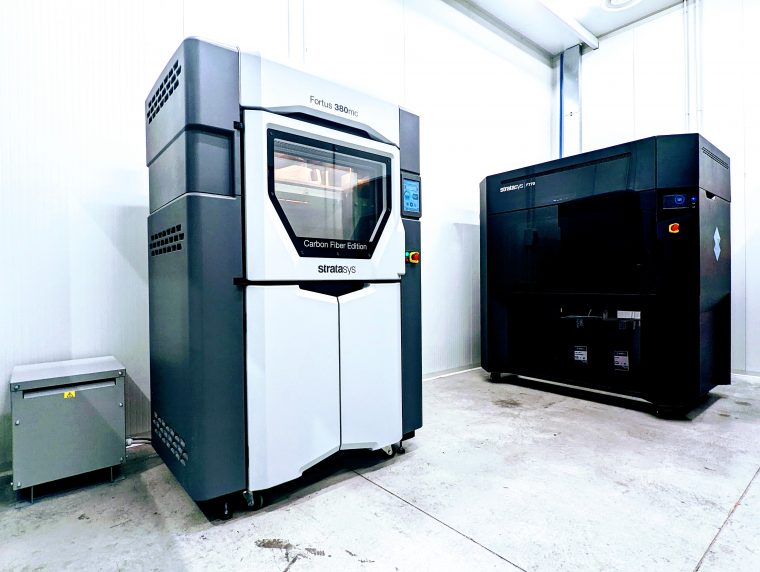
In other news, Phillips Corporation’s Federal Division has signed an agreement to acquire a new WarpSPEE3D metal 3D printer from SPEE3D for its Center of Innovation. Phillips and the US Army will use the machine to further develop the facility’s 3D printing capabilities and develop large-format parts on-demand for military metal applications.
“Since 2020, the unique high-speed capabilities of SPEE3D technology have proven to be an excellent addition in supporting the RIA’s manufacturing innovation objectives, and the scope of our P3 Program,” said John Harrison, Global Director of Phillips Additive.
“The new WarpSPEE3D printer at the RIA’s Center of Excellence for Advanced Manufacturing facility will allow us to further our scope and make cutting-edge achievements in developing large-format applications for expeditionary forces in the US.”
GE has also announced its Q4 and full-year 2021 results, and while additive manufacturing isn’t directly referenced in the financials, its aviation division is going from strength to strength, as is its offshore wind business. At GE, 3D printing plays an active role in both its wind turbine operations and its aviation business, and the positive financials from the company gives a good indication to the health of the technology’s implementation at the firm.
Rounding off this week’s business updates is Stratasys, which has called on top industrial designers to rethink everyday accessories with sustainability and inclusion in mind. The firm is working as part of the Re-FREAM project to explore how biomechanics, embedded sensors, and direct-to-textile 3D printing could help to develop sustainable materials and products that are more accessible and customizable.
In particular, the project is leveraging Stratasys’ J750 and J850 3D printers to create flexible and geometric textile structures in biomechanical materials that mimic the aerodynamics, stretchability, and durability of human skin.

3D printing partnerships from Polymaker, Auburn University, and Nanoscribe
Moving onto new partnerships, and polymer 3D printing specialist Polymaker has teamed up with Akribis Systems spin-off AMESOS to co-develop FFF-based 3D printing solutions that tackle the technology’s pain points, such as printing speed. The companies are developing what they call ‘FFF 2.0’ to address the drawbacks of FFF, involving a unique software that combines physics-based simulation and data science to guide the development and optimization of printing processes.
AMESOS will also introduce a new 3D printing system called the Blade 1 to market later this year which claims to deliver a 60 percent reduction in printing times over existing FFF printers with no compromise on print quality. The system will be paired with a custom-developed material from Polymaker which will help the system scale to serial 3D printing applications.
Meanwhile, Auburn University has chosen Sigma Labs’ PrintRite3D quality assurance platform to assist it in several additive manufacturing projects. Integrated into an EOS M290 printer, PrintRite3D will be used within the university’s projects to explore how microscopic anomalies in 3D metals affect overall fatigue and fracture properties within parts for aviation and space.
“We are delighted to announce our collaboration with Auburn University, and especially the opportunity to participate with the exciting partnership between NCAME, NASA, the FAA, and Auburn,” said Mark Ruport, President and CEO of Sigma Labs. “These great organizations are working hard to find methods to utilize 3D printed parts to support aviation and space industries. In close coordination with the NCAME, we are also supporting the efforts of the ASTM International Additive Manufacturing Center of Excellence, with the objective of closing AM standards and workforce gaps.”
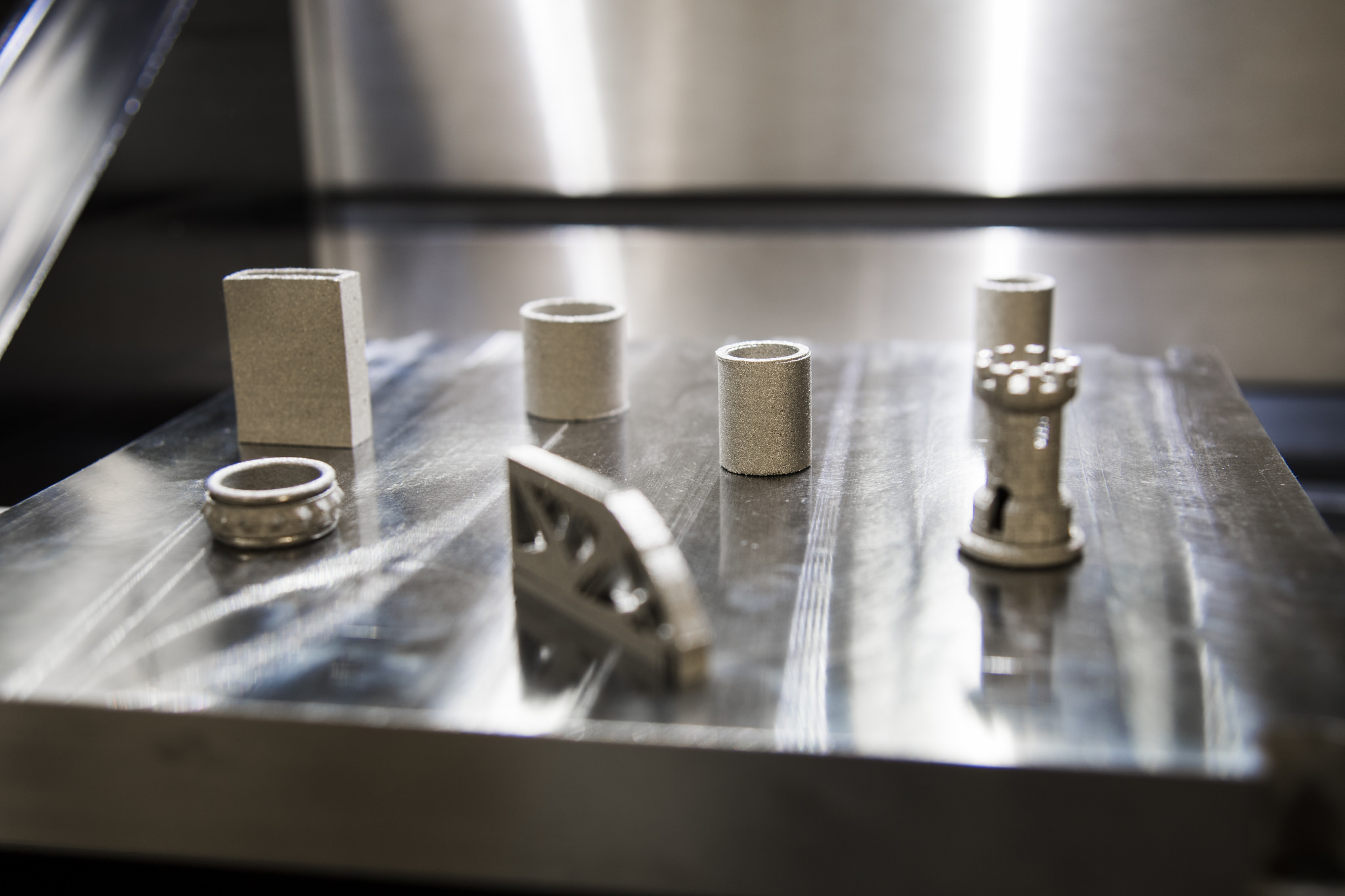
Elsewhere, 3D printer manufacturer Nanoscribe has partnered with photonic assembly service provider PHIX to provide on-fiber printing services to the photonic packaging industry. PHIX will leverage Nanoscribe’s high-performance 3D micro-lens 3D printing technology with nano-precision within its manufacturing services of standard lens fiber arrays (LFAs).
In particular, PHIX and Nanoscribe’s partnership will enable the production of Free Space Microoptical Coupling (FSMOC) components printed directly on fiber arrays and photonic integrated circuits (PICs).
“PHIX’s extensive expertise in assembly and packaging of photonic integrated circuits is a compelling fit for Nanoscribe to jointly validate and further advance our technology in an industrial environment,” said Jörg Smolenski, Business Developer at Nanoscribe.
“We are excited to take manufacturing quality to the next level with our new approach of aligned high-precision 3D printing for manufacturing standard LFAs.”
Finally, high-speed resin 3D printer manufacturer Nexa3D has joined forces with Obsidian Solutions Group (OSG), a solutions provider for the US Department of Defense (DoD) and intelligence communities, to resell its NXE 400 and NXD 200 3D printers.
Having used three NXE 400 printers to help meet its customer requirements for short-run production plastics since April last year, OSG has now acquired two further NXE 400 printers and one NXD 200 system. The firm will leverage the printers for its work with government agencies and commercial and industrial businesses, as well as utilizing them to free up soe of its capacity within its cast urethane business.
OSG has also signed up to Nexa3D’s printer reseller network and will begin offering 3D printing systems from Nexa3D to help expand its owns customers’ 3D printing capabilities.
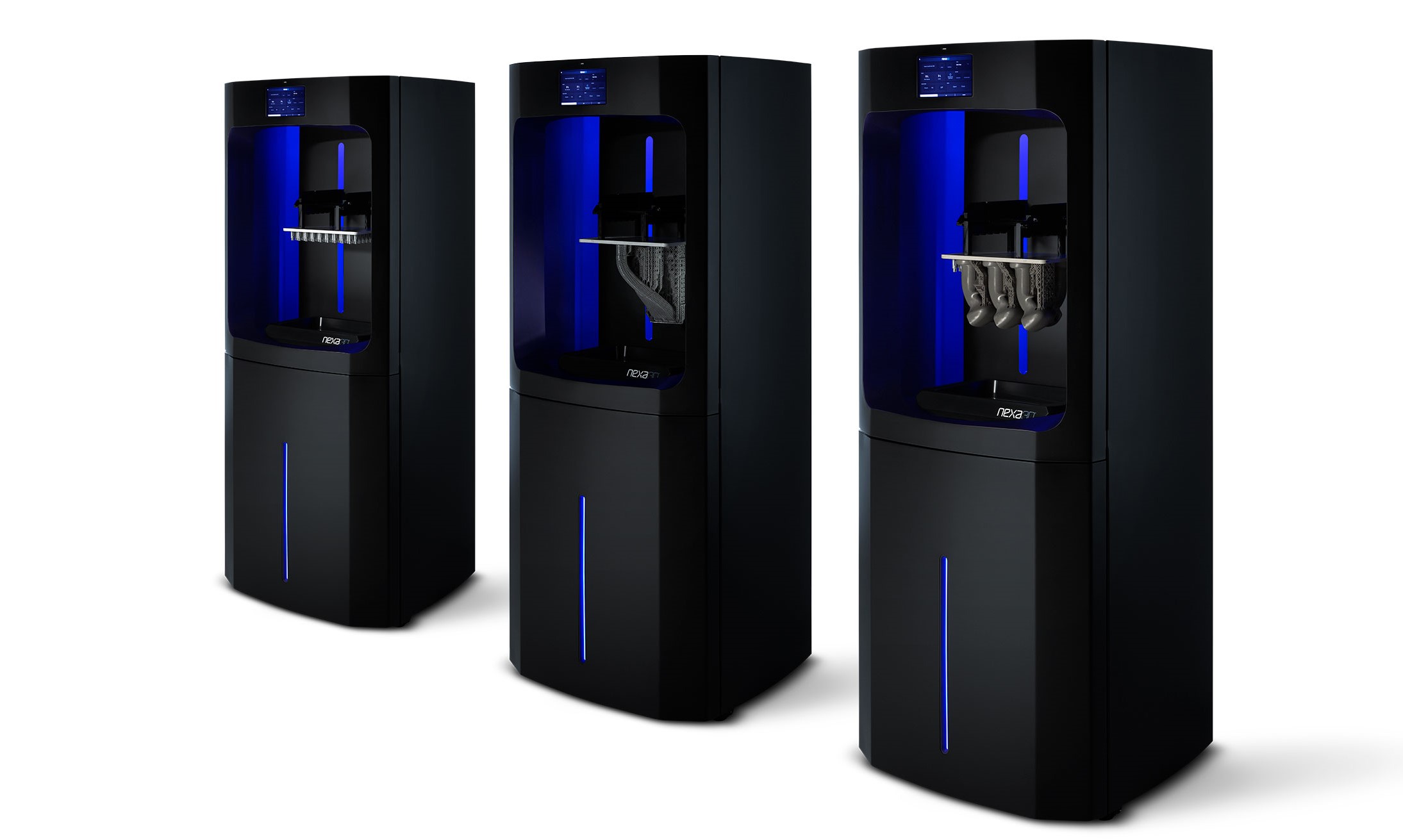
Material updates from Rogers Corporation, post-processing developments from PostProcess and AM Solutions
Engineering materials developer Rogers Corporation, currently working with composite 3D printer manufacturer Fortify, has launched its new range of Radix 3D printable Dielectrics at the IPC APEX EXPO 2022. Radix 3D Printable Dielectrics are proprietary composite materials designed for Digital Light Processing (DLP) 3D printing, with the aim to enable a scalable, high-resolution printing process for end-use RF dielectric component manufacturing.
The new materials are intended for use as RF materials in applications where new geometric freedom can enhance the figure of merits of an RF system, such as gradient dielectric constant (GRIN) structures. The first available material features a dielectric constant of 2.8, low loss characteristics at microwave frequencies and a dissipation factor of 0.0043 at 10 GHz when cured.
Over in the post-processing world, automated post-processing system manufacturer PostProcess has launched what it claims to be the fastest system for production FDM support removal, the VORSA 500. The high-volume automated system leverages the firm’s patented spray technology to deliver consistent hands-free support removal with the same one to two-hour cycle times and chemistry of its existing line-up.
According to PostProcess, the system reduces support removal processing times by over 50 percent, while its full chamber coverage allows for processing larger batch sizes.
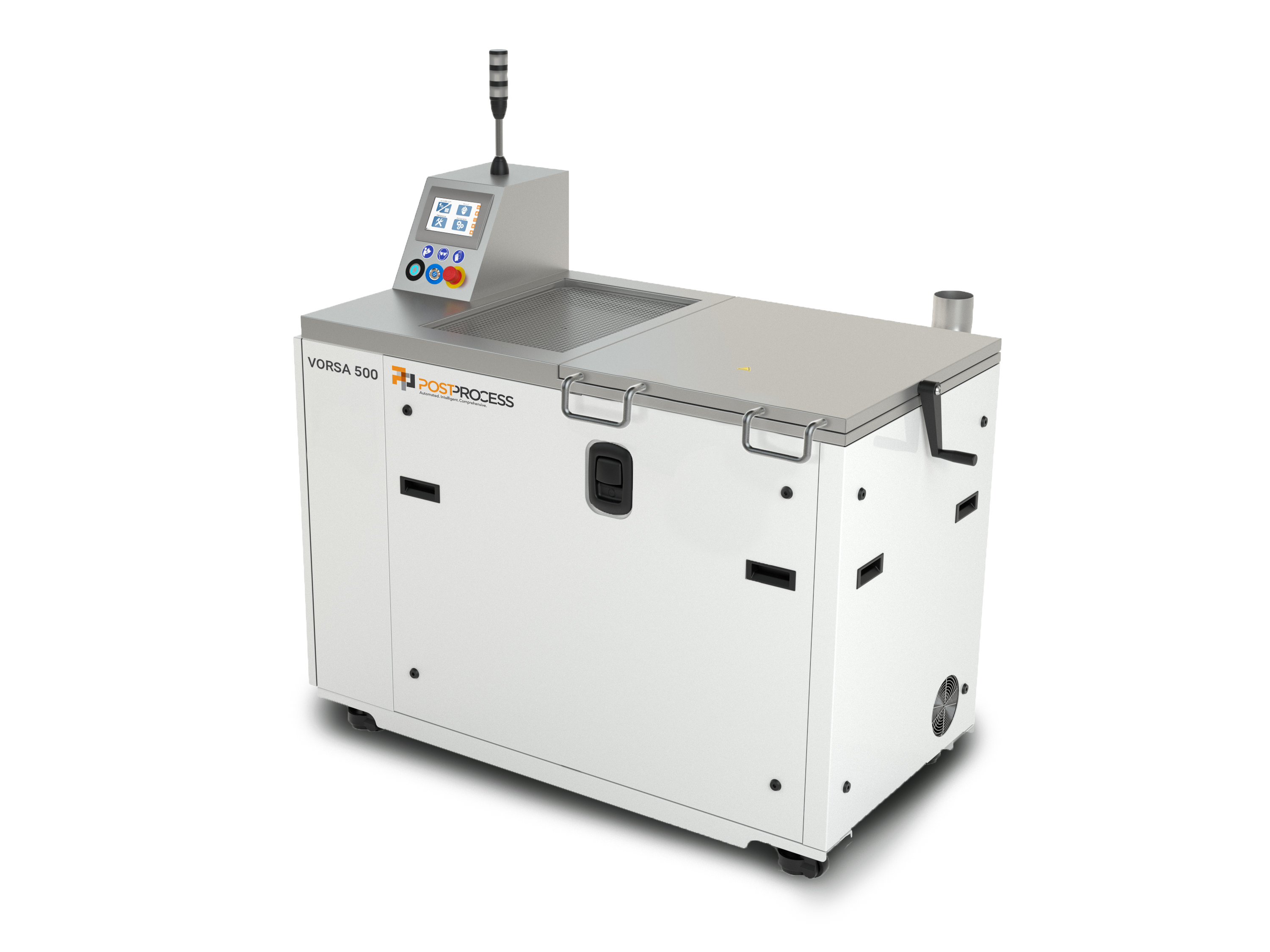
Meanwhile, AM Solutions, the Italian 3D printing subsidiary of the Rösler Group, has revealed its S1 automated post-processing system has been purchased by recreational vehicle manufacturer Knaus Tabbert. The shot-blasting system, specifically developed for the post-processing of plastic PBF-printed components, was chosen by Knaus Tabbert for its time-saving and cost-efficient de-powdering as well as its surface smoothing and homogenization of 3D printed component capabilities wrapped up in a single machine.
“The fact that after surprisingly short cycle times the components came out of the machine perfectly clean and without any powder residues was very impressive,” said Mario Meszaros. “With the underlying operating data I prepared a ROI calculation. The results quickly convinced our management: Even with only three print jobs per week in the S1, we already achieve a return on investment after roughly two years.
“However, it is safe to assume that the quantity of 3D printed components will increase significantly. This will drastically reduce the amortization period.”
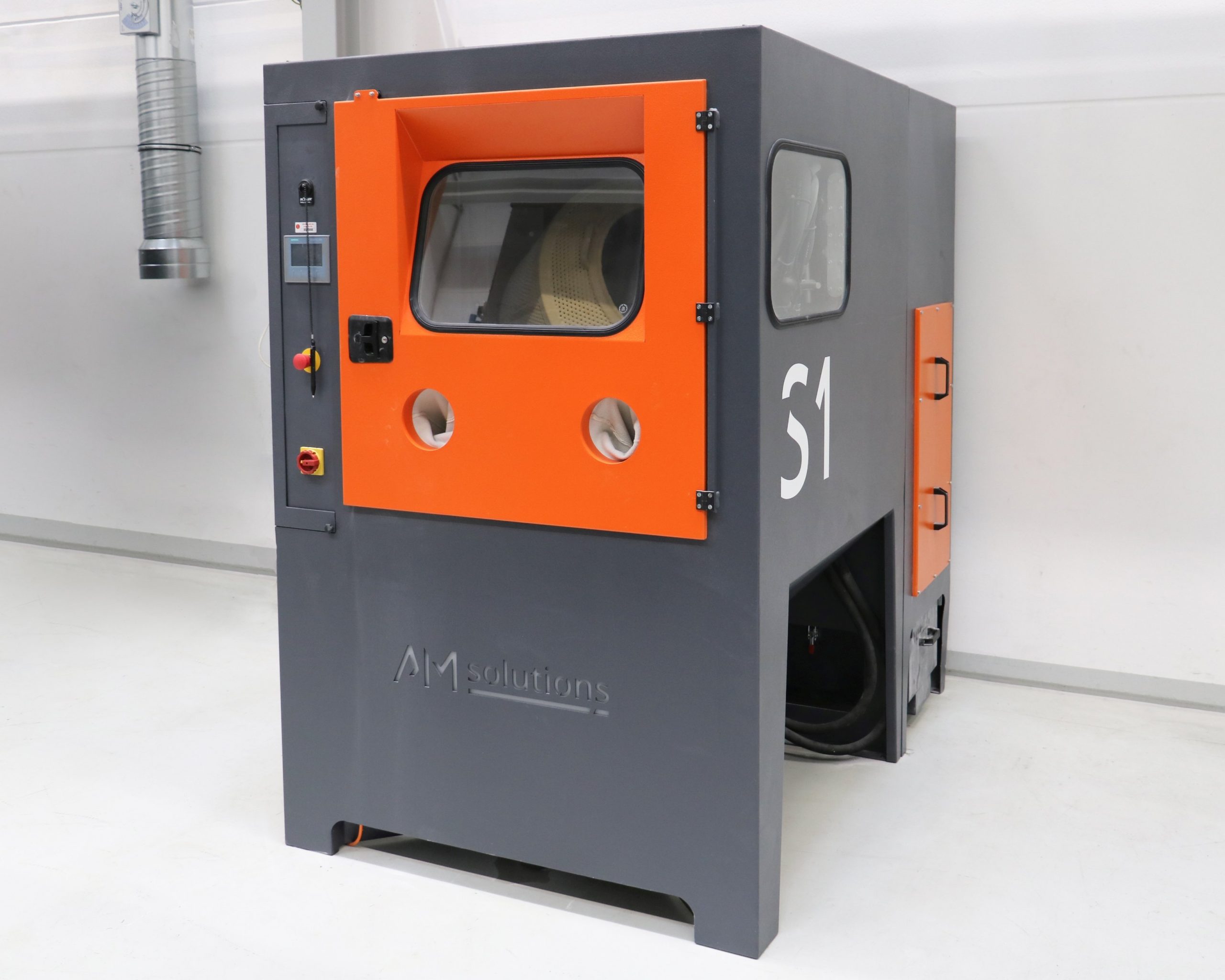
Qualifications and QA news from Shapeways and MIMO Technik
3D printing service provider Shapeways has extended its quality assurance capabilities to address the rigorous production requirements of its enterprise customers. The firm’s enhanced quality assurance and quality control procedures aim to lower manufacturing barriers while increasing the speed of delivery of quality parts.
Shapeways’ improved quality management process includes real-time monitoring and alerts, along with complete testing and quality checks designed to achieve part reliability and consistency. Tracking updates on all production and post-processing keeps customers fully informed on status while complete traceability facilitates fast root-cause analysis of issues impacting end-to-end manufacturing flows.
Elsewhere, aerospace and defense manufacturer MIMO Technik and 3D printer manufacturer SLM Solutions have announced “huge strides” in quickly qualifying 3D printing for parts and processes for the aerospace sector. Leveraging SLM’s technology, MIMO Technik has successfully met the material specification performance for ALSi10Mg aluminium powder for Boeing at increased productivity rates.
“This major qualification proves that MIMO Technik is a leading part manufacturer for the aerospace industry,” said Simon Merkt-Schippers, EVP of Product Management at SLM. “It is almost unreal what Jonathan is getting out of our machines, resulting in incredible competitive advantages to MIMO Technik. On top of our open architecture, our extensive support for certified serial production comes along with the IQ, OQ, and PQ qualification process.
“These were key advantages for this joint success and for MIMO Technik’s overall accelerated adaption of SLM technology for aerospace.”
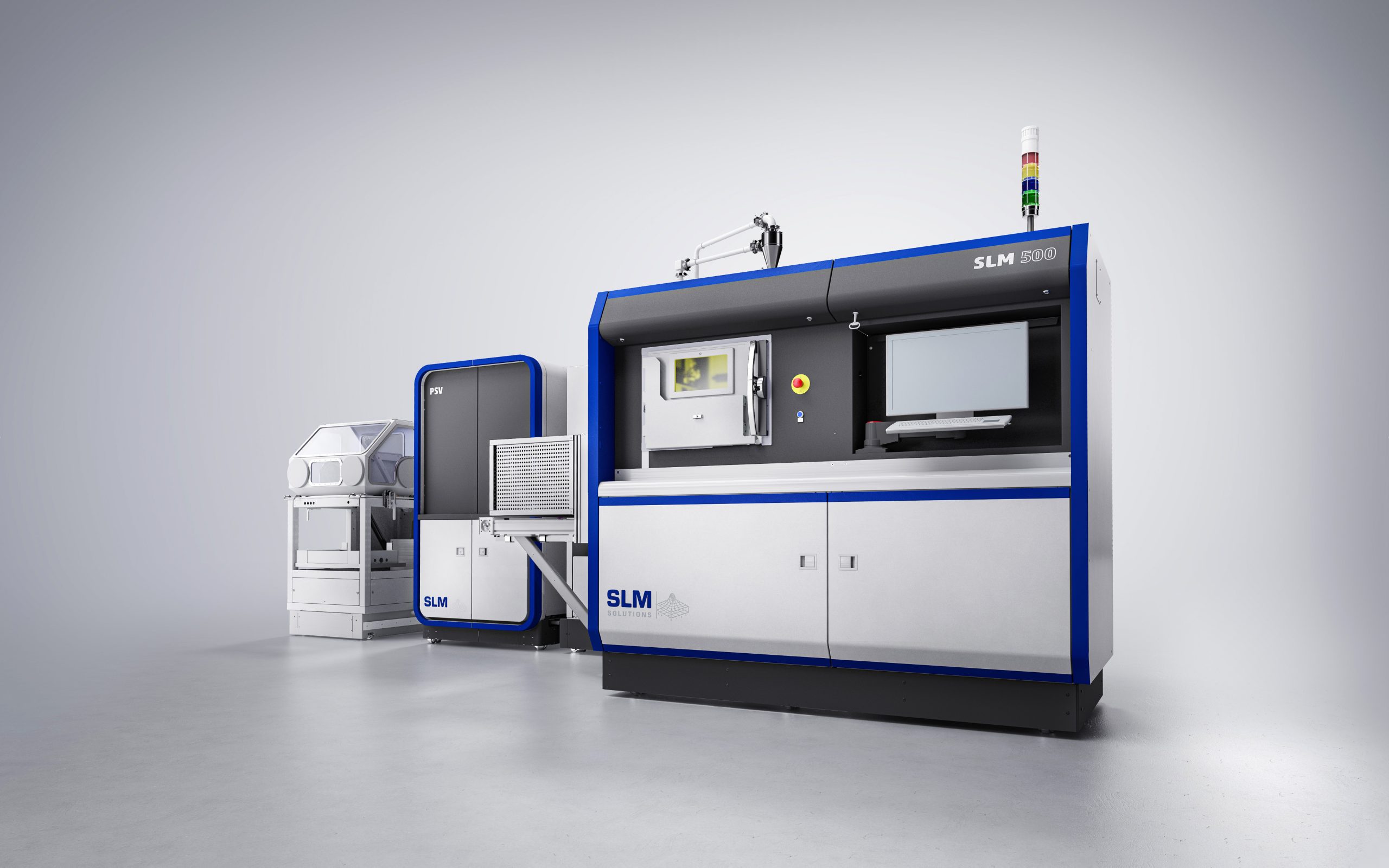
BCN3D to “unlock manufacturing autonomy”
Rounding off this week’s news update is the unveiling of a “brand new 3D printing technology” for FDM 3D printer manufacturer BCN3D. While little detail released so far on what the technology will be, the company claims it will “unlock manufacturing autonomy” and hinted at the involvement of Arkema, Saint Gobain and Prodrive.
BCN3D is holding an online event to reveal the new technology on 2nd March at 4pm CET, and those interested in attending can do so here.
Subscribe to the 3D Printing Industry newsletter for the latest news in additive manufacturing. You can also stay connected by following us on Twitter and liking us on Facebook.
Looking for a career in additive manufacturing? Visit 3D Printing Jobs for a selection of roles in the industry.
Subscribe to our YouTube channel for the latest 3D printing video shorts, reviews and webinar replays.
Featured image shows Ganit Goldstein’s direct-to-textile 3D printed Kimono with the sliced logo.



